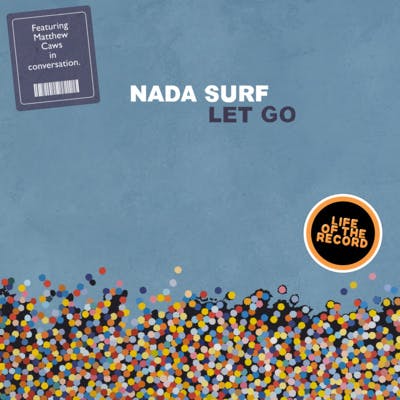The Making of LET GO by Nada Surf - featuring Matthew Caws
Podcast: Life of the RecordPublished On: Tue Mar 14 2023
Description: For the 20th anniversary of Nada Surf’s third album, LET GO, we take a detailed look at how it was made. After Matthew Caws and Daniel Lorca formed the band in 1992, they eventually linked up with drummer, Ira Elliot. They spent several years grinding it out in their hometown of New York City where they worked multiple jobs and hustled to get their music heard. During a chance encounter with Ric Ocasek at a show at the Knitting Factory, Matthew Caws gave him a demo tape. A couple weeks later, Ocasek got back in touch with Matthew and offered to record them if they were able to sign to a label. Luckily, Elektra Records offered them a deal soon after and they went on to release their Ocasek-produced debut album, HIGH/LOW in 1996. Due to the unexpected success of the first single, “Popular,” Nada Surf found themselves under a lot of pressure for their follow-up album. THE PROXIMITY EFFECT was released in Europe in 1998 but Elektra got cold feet and decided not to release the album in the U.S. and ended up dropping the band. With no record contract, they found themselves back in New York, working odd jobs and calling in favors for help recording their third album, which ended up becoming LET GO. In this episode, Matthew Caws joins us for an in-depth conversation about this pivotal moment in the band’s history when they went from being a major label success to suddenly being completely independent. Matthew describes how this period of his life was completely music-focused as he worked at a record store and spent all of his time going to shows and writing songs. The low pressure situation that they found themselves in inspired a more diverse group of songs and a more relaxed feel to their recordings than ever before. From sprinting home to remember song ideas to obsessively listening to a Sony Sports Walkman to writing a song in an Amsterdam bathroom to Chris Walla’s mixing skills to gratitude for recorded music, we’ll hear the stories of how the record came together.
The note was deleted
The note was saved
Your message was sent
